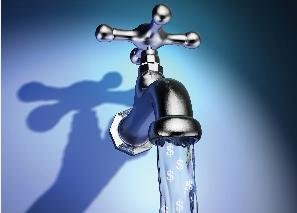1. Full loads only
Whether it’s doing the laundry or putting dishes in the dishwasher, try to only run your machine when it’s full. Dishwashers use a preset amount of water and can save more water than hand-washing (since most people have a habit of letting the faucet run as they wash), but it can be just as wasteful if you run too many small cycles. Similarly, too many “small” loads in a washing machine wastes water and energy!
2. Turn off the faucet
When we are brushing our teeth, shaving or washing dishes we tend to let the faucet run unnecessarily. Instead, take a moment to turn off the faucet in between motions and only turn it back on when you intend to use it. It may seem tedious at first, but with effort it can become second nature.
3. Time your showers
A shower is definitely better than a bath; the average bath uses up to 70 gallons of water and a shower only uses 10 to 15. But, a shower can still be wasteful if you’re not careful! Consider getting a timer, or timing yourself on your phone while in the shower. If you really want to conserve water, the max time in the shower should be 5 minutes.
4. Cut down on flushing
It might feel convenient, but using the toilet as a garbage disposal wastes gallons of water. Not to mention, flushing food waste, wipes or small pieces of trash can result in huge problems for your local sewage treatment plant. So train yourself to take a few extra steps to the garbage can! If the food waste is especially pungent, try dumping it in a used plastic bag and sealing it before putting it in the can.
5. Try different lawn care methods
It could be you’re watering your lawn a lot more than you have to. Try watering once a week instead of daily, and only in the morning and evening; this method allows the grass to absorb the water faster before it evaporates. Some have even planted trees near their lawn to provide shade and protect the grass from the sun, or invested in water-saving plants!
Why It Matters
Clean water is not an endless resource. In fact, much of our usable water is the product of hard work done behind the scenes at a water treatment facility. Water conservation reduces the need for wastewater treatment, helps protect the environment, and saves you and your community a lot of money in the long-run.
Overall, these small but significant changes to your daily habits can make a big difference!
More tips on water conservation can be found here.

